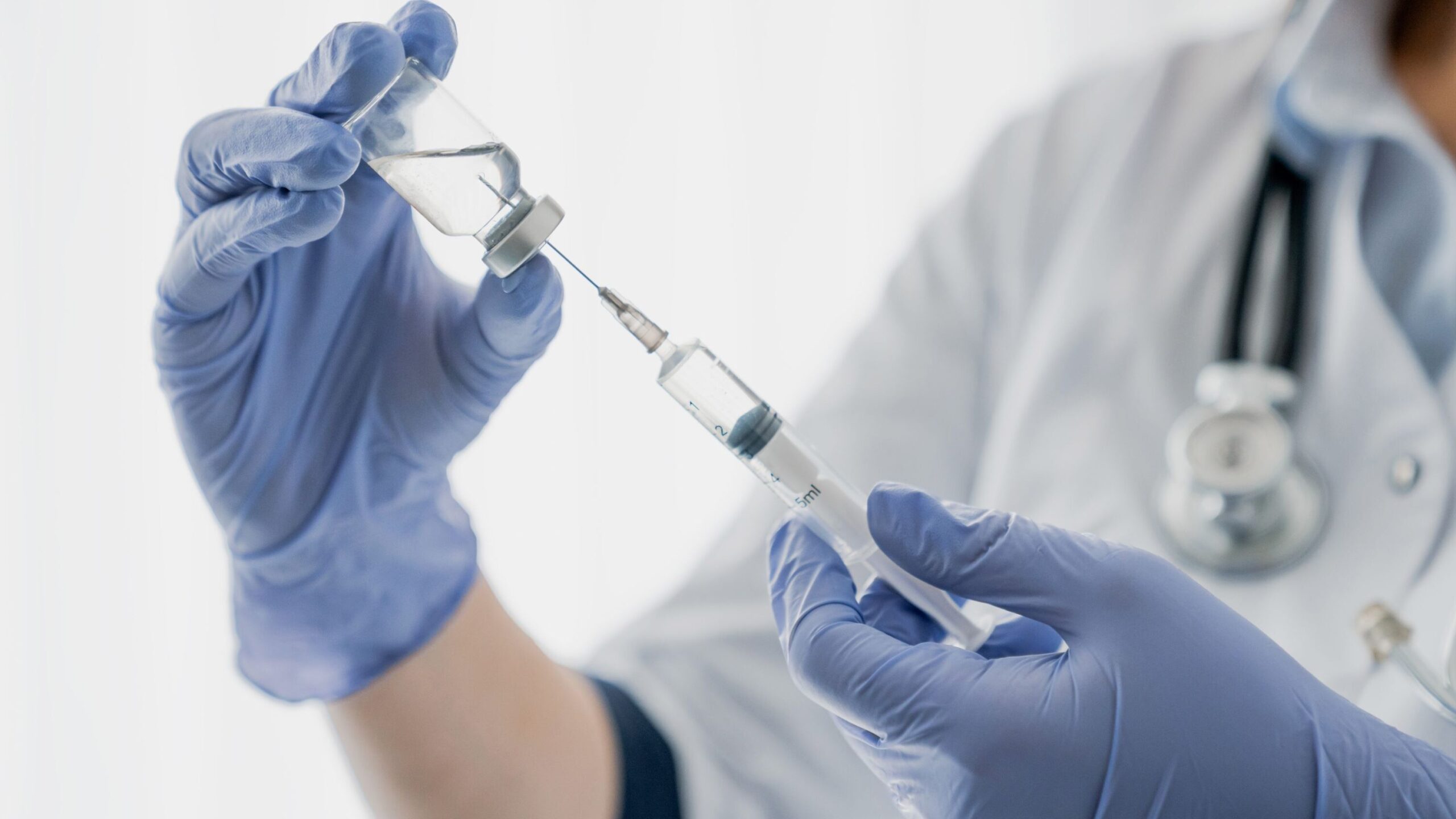
Updated on April 1, 2021:
As of March 29, 2021 NACI advised a temporary pause on administering AztraZeneca to people under the age of 55. For more information, click here.
Please know that we continue to monitor how this might impact prioritization of those with T1D for COVID-19 vaccination. We will share more details as they become available.
Updated on March 24, 2021:
The Government of Ontario for their updated COVID-19 vaccine rollout plan which prioritizes people living with diabetes. Ontarians with diabetes are now included in Phase 2 of the plan.
People living with type 1 diabetes aged 16 and up can now receive the COVID-19 vaccine, as per Health Canada approvals, and are now in Phase 2B of Alberta’s vaccine rollout plan. The vaccine priority list was also updated to include high-risk medical conditions, including: “Diabetes requiring insulin or other anti-diabetic medication to control.”
People with diabetes have now been prioritized for Phase 2 in Manitoba. Please refer to this link for more info.
The BC government announced that those who are “extremely vulnerable” can start booking their vaccine appointments as of Monday, March 29th. This includes people with diabetes who are on insulin. Details are here.
Updated on March 4, 2021:
We’ve received many questions about the COVID-19 vaccination rollout in provinces and territories across Canada, and specifically at what stage people living with type 1 diabetes (T1D) should expect to receive theirs.
The first two COVID-19 vaccines, from Pfizer-BioNTech and Moderna, began being administered to Canadians in late December, 2020. On February 26, 2021, Health Canada approved a third and fourth SARS-CoV-2 vaccine, one of them being more commonly known as the Oxford-AstraZeneca vaccine. Both the newly approved vaccines are the same formulation, but manufactured in different locations. They also both require a second booster shot as part of the inoculation scheme.
This vaccine is different from Pfizer and Moderna, and is based on an adenovirus vector, not mRNA. For more info: https://www.canada.ca/en/health-canada/services/drugs-health-products/covid19-industry/drugs-vaccines-treatments/vaccines/astrazeneca.html
The World Health Organization (WHO) recommends this vaccine for people with diabetes, although they have not specified or distinguished between type 1 and/or 2. This vaccine has an efficacy rate of 62 per cent and Health Canada has authorized it for use in all adults 18 and older. All currently approved COVID vaccines reduce severe disease and hospitalizations.
Vaccine roll-out plans are still being developed and vary in different provinces and territories. Vaccine roll-out plans are guided in part by recommendations provided by the National Advisory Committee on Immunization (NACI), who provides guidance on use of vaccines approved for use in humans in Canada.
Original post:
February 26, 2021
We’ve received many questions about the COVID-19 vaccination rollout in provinces and territories across Canada, and specifically at what stage people living with type 1 diabetes (T1D) should expect to receive theirs.
The first two COVID-19 vaccines, from Pfizer-BioNTech and Moderna, began being administered to Canadians in late December, 2020. Vaccine roll-out plans are still being developed and vary in different provinces and territories. Vaccine roll-out plans are guided in part by recommendations provided by the National Advisory Committee on Immunization (NACI), who provides guidance on use of vaccines approved for use in humans in Canada.
Both vaccines approved for use in Canada have data to date demonstrating the vaccine is safe and effective for people with T1D. If you have specific allergies, please discuss with your healthcare provider.
Vaccination will not be mandatory in Canada. However, for people living with diabetes, we encourage you to consult with your doctor about your specific health condition with regards to vaccination.
Will the vaccine work just as well in people with diabetes?
People with T1D are not immunocompromised, and previous research indicates that the immune response to fighting coronavirus in people with diabetes is no different to people without the disease. The length of protection any of the vaccines will provide is still unknown as we are in the early stages of the rollout.
For more information, please refer to this blog: https://breakthrought1d.ca/blog/covid-19-vaccines-and-t1d/
Should people living with T1D be prioritized to receive the vaccine?
Compared with people without underlying conditions, adults (especially older adults) with diabetes are at greater risk of severe disease and death if they develop COVID-19, and vaccines are the most effective way to prevent the disease. Thus, JDRF believes that people living with diabetes should be prioritized for vaccination, and we have been advocating with this message to the federal government.
How has JDRF Canada advocated on behalf of people living with type 1 diabetes?
In early January 2021, JDRF sent a joint letter with Diabetes Canada to Health Canada detailing concerns about guidance from NACI that may have resulted in people with diabetes being excluded from COVID-19 vaccination.
In mid-January 2021, JDRF also sent a letter to NACI, highlighting that high-risk groups, including those with T1D, should be prioritized.
In these communications, we:
- Asked for clarification on ambiguous guidance provided about COVID-19 vaccination for those with autoimmune disease, which may have resulted in people with T1D being excluded from COVID-19 vaccination
- Provided clear rationale for those with T1D to be prioritized for COVID-19 vaccination
- Emphasized that people with type 1 and type 2 diabetes should be prioritized (not only type 2 diabetes, as occurred in the USA), as the risks of severe COVID-19 outcomes are similar or even greater in the T1D population.
Progress to date:
On February 12, 2021, NACI updated two key issues that are relevant to the T1D community:
- NACI has now clarified their definition of ‘persons with an autoimmune condition’ so that those living with T1D should NOT be excluded from receiving a COVID-19 vaccine.
NACI has now also outlined the key populations they are recommending receive the vaccine in stages 2 and 3 of the rollout. Stage three now includes “Adults 16-59 years of age with an underlying medical condition at high risk of severe illness due to COVID-19 and their essential primary caregivers”.
It is our hope that provinces and territories will soon communicate their roll-out plans for the next stage of vaccination, with timelines. We will continue to stay on top of updates and share any major developments as they become available. Our ongoing advocacy efforts will be based on whether and how provinces and territories are prioritizing people with diabetes for vaccination.
How you can advocate to your provincial and municipal governments.
If you want to voice any concerns you may have related to the vaccine roll out with your provincial or territorial government, consider writing to your province’s Chief Medical Officer, the Minister of Health, your MLA/MPP or all three.
At the municipal level you can also connect with your city/town’s– Chief Medical Officer/ Chief Public Health Officer – or your local representative (Councillor/ Alderman.)
Please find attached this letter that you can fill out and email or mail to your provincial or local health authority to make your voice heard.
For further information about the availability of COVID-19 vaccination in your community, refer to your Provincial or Territorial Health Authority. We advise everyone with diabetes considering COVID-19 vaccination to speak with their healthcare team to help make an individualized decision.
For more information on COVID-19 and T1D, please visit breakthrought1d.ca/coronavirus.
